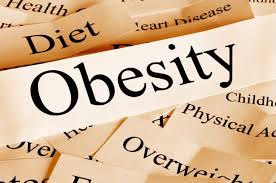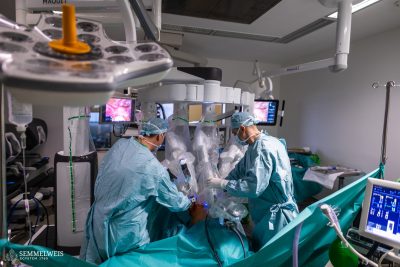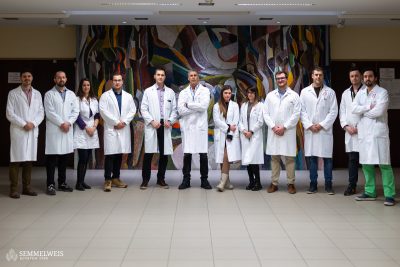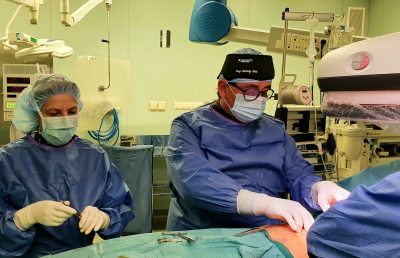 Dr. Balázs Győrffy, researcher of the Hungarian Academy of Sciences and Semmelweis University, stresses that losing 10 kilograms in case of overweight people would decrease the chance of cancer by 11%. Unhealthy lifestyle (mostly smoking and obesity) is responsible for 2/3 of cancer diseases, even though these could be prevented.
Dr. Balázs Győrffy, researcher of the Hungarian Academy of Sciences and Semmelweis University, stresses that losing 10 kilograms in case of overweight people would decrease the chance of cancer by 11%. Unhealthy lifestyle (mostly smoking and obesity) is responsible for 2/3 of cancer diseases, even though these could be prevented.
Smoking causes 1/3 of cancer diseases, but a lack of exercise represents the same rate. It is common knowledge that one pack of cigarettes per day increases the risk of lung cancer 22-fold. In the past few years we realised that smoking also increases the risks of numerous other malignant tumours, such as ovarian, oral, colorectal, pancreatic, oesophageal, stomach, kidney, liver, bladder and breast cancer.
However, it is a less known fact that that every extra kilogramm above the normal bodyweight increases the risks of cancer by one per cent. By “unhealthy lifestyle” the expert means obesity (20% of preventable cancer), lack of exercise (5%), increased alcohol consumption (3%) and incorrect nutrition (5%). Exaggerated sunbathing also causes a large number of skin cancer cases in Hungary.
Most people put on weight continuously without even noticing. For example, half a cookie (50 calorie) per day results in 2 extra kilograms a year. The problem is that this weight is almost only represented in the form of adipose tissues and it generates growth factors in the form of hormones (insulin and oestrogen), which lead to the development of different forms of cancer. The connection between obesity and the development of certain cancer types is scientifically proven and it is considered the second most important avoidable cause of cancer by the World Health Organization. Obesity may cause pancreatic, colorectal, kidney and breast cancer, as well as a certain type of oesophageal cancer. There is growing number of evidence that it may also be the causal factor of other types of cancer, such as liver or gallbladder cancer.

Lack of exercise increases the risks of colorectal, cervical and breast cancer. Scientific literature on this subject is completely new; in fact it only came into focus 3 years ago. This is why scientific investigations are at an early stage, but the positive effects of an active lifestyle on the prevention of cancer are known to be a fact; it’s not a surprise that the American Cancer Society recommends it as well.
Increased alcohol consumption increases the risks of oral, oesophageal, pharyngeal, laryngeal, colorectal and breast cancer. It also came to light that there is a connection between other culinary habits and cancer diseases, for example the systematic consumption of hot meals increased the development of stomach cancer in Japan 10-fold. However, consumption of fruits and vegetables may serve as a protection against colorectal cancer. Epidemiological studies show that losing 10 kilograms decreases the chance of cancer by 11% when it comes to obesity.
During the last three decades the number of deaths from cancer increased by 150% while in the EU the increase was only 50%. This horrifying Hungarian data is not even taken seriously by medical students; they look sceptically when Dr. Balázs Győrffy tells them that every second man and every third woman are going to have cancer in the course their lives. The most disturbing fact is that most of these cases could easily be avoided with the appropriate lifestyle. According to the researcher, men between the ages of 50 and 60 are most endangered – even internationally – with the highest mortality rate for most cancers (lung, oral, pharyngeal, laryngeal, stomach and pancreatic).
Rita Czétényi
Translated by: Bonifác Makkai


